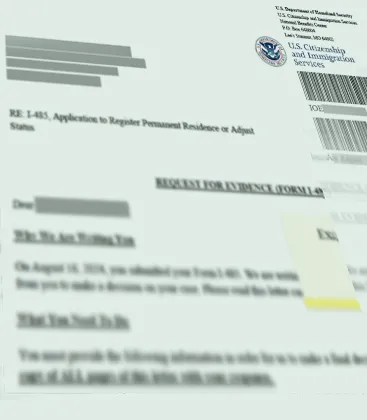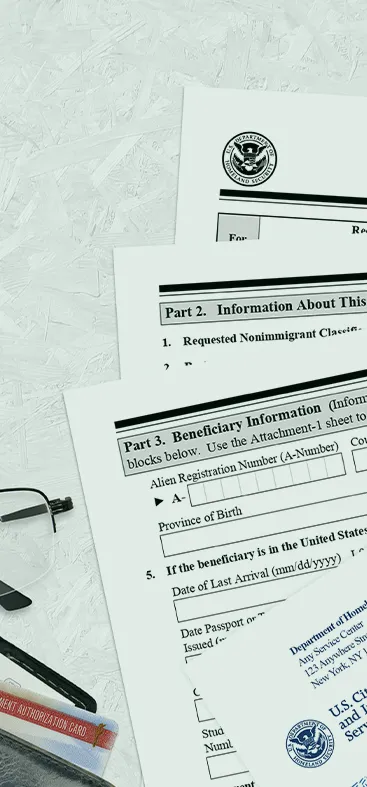MON – FRI (8am - 6pm)
The EB2 National Interest Waiver (NIW) visa lets professionals with advanced degrees or exceptional abilities self-petition for U.S. residency by proving their work benefits the national interest. Popular in STEM, healthcare, and education, the EB2 NIW processing time refers to the duration needed to obtain permanent residency through this visa.
This visa eliminates employer sponsorship, requiring applicants to show their work has national importance and waiving the job offer benefits the U.S. Looking for legal help? Contact Serving Immigrants to assist you.


One of the key benefits of the EB2 NIW is the exemption from labor certification, which can significantly reduce EB2 NIW processing time. This visa also permits self-petitioning, granting individuals greater autonomy in their immigration journey.
Additionally, the EB2 NIW visa provides a direct pathway to obtaining a green card, valid for 10 years and renewable indefinitely. Spouses and children under 21 can also benefit from derivative status.
Nearly 80% of EB2 NIW applicants are approved annually. Highlighting unique skills and national contributions boosts approval chances and secures long-term U.S. residency. An expert attorney ensures the best possible outcome.
The processing time is determined by the following steps:
Detailed documentation, such as academic records, recommendation letters, and evidence of work impact, is essential. Staying organized ensures a smooth application process.
Addressing RFEs promptly and staying updated on visa availability through the Visa Bulletin are essential for managing these challenges effectively.
The EB2 NIW processing time depends on the USCIS center and case complexity. Form I-140 averages 6–15 months, with premium processing offering a 45-day decision for $2,500.
Adjustment of status or consular processing takes 9 to 24 months, potentially longer with visa retrogressions. Monitoring the Visa Bulletin helps track priority dates and timelines.
Introduced in 2023, premium processing allows EB2 NIW applicants to receive Form I-140 decisions in just 45 days. This significantly speeds up the process, making it ideal for time-sensitive cases. However, it does not accelerate subsequent steps such as adjustment of status.

To qualify for the EB2 NIW visa, applicants must show an advanced degree (master’s or higher, or bachelor’s with 5+ years of experience) or exceptional ability proven by awards, memberships, or peer recognition, with supporting documents like transcripts and letters.
Applicants must provide clear evidence linking their achievements to their proposed work, as USCIS closely examines each claim to ensure credibility. Contact Serving Immigrants for dedicated legal assistance in immigration.
A key aspect of the EB2 NIW is proving the work's national importance and merit, such as addressing societal challenges or fostering economic growth. Evidence like publications, patents, or impact data supports the case, e.g., renewable energy innovations reducing emissions.
USCIS assesses the feasibility of the work and the applicant’s ability to execute it. A well-prepared petition showcasing achievements aligned with U.S. priorities, backed by patents, publications, and measurable outcomes, strengthens eligibility and minimizes processing delays.

Premium processing is valuable for applicants with immediate requirements, though it does not expedite subsequent steps like Form I-485. See how Form I-485 looks.
Applicants should assess their specific circumstances before opting for this service.
Providing well-organized and labeled evidence minimizes delays and strengthens the petition.
Preparation ensures smooth processing during these critical stages.
RFEs in EB2 NIW applications often stem from incomplete documents, insufficient evidence of exceptional ability, or unclear work feasibility.
An RFE is an opportunity to address gaps and strengthen the petition. Reviewing the notice carefully and providing detailed evidence keeps the application on track.
Responding to an RFE requires addressing USCIS concerns with clear, organized documentation. An immigration attorney can help ensure thorough responses that strengthen the petition and improve approval chances.
Meeting the RFE deadline is crucial for progress. Clear communication and a strong petition highlighting achievements can enhance eligibility for the national interest waiver.

Ensuring completeness from the start reduces processing times and strengthens the petition. Need legal solutions? Contact Serving Immigrants, we can guide you through the process.
Tailoring the petition to align with U.S. goals maximizes the chances of approval.
Learn more about the EB2 NIW processing time through this FAQ section, covering common concerns and tips to ensure a smoother application process.
The average processing time for Form I-140 is 6 to 15 months. However, timelines vary depending on the USCIS service center and case complexity.
You can track your case status on the USCIS Case Status Tracker using the receipt number provided in your filing confirmation notice. Enter the USCIS Case Status Tracker by clicking here.
Yes, premium processing can significantly reduce the processing time for Form I-140 by providing a decision within 45 days for an additional fee of $2,500.
No, processing time typically depends on USCIS workload and documentation, not the applicant's field. However, well-documented cases may process faster.
USCIS may redistribute your case to another service center, which could affect processing times. You will be notified of any changes to your case’s location.